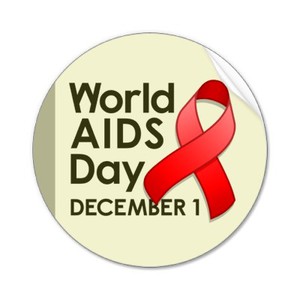Funding decline, yet 10 m still unable to access AIDS treatment
By Henry Neondo
 Although December 2010 marks the G8 deadline set at the 2005 Millennium Summit to provide universal access to prevention, treatment, care and support for the 33.3 million people living with HIV worldwide, yet as the world marks the World AIDS Day (WAD) Wednesday, there are still approximately 10 million who desperately need immediate treatment but are unable to access it.
Although December 2010 marks the G8 deadline set at the 2005 Millennium Summit to provide universal access to prevention, treatment, care and support for the 33.3 million people living with HIV worldwide, yet as the world marks the World AIDS Day (WAD) Wednesday, there are still approximately 10 million who desperately need immediate treatment but are unable to access it.
The HIV/ AIDS activists are not taking the development lying down.
In the US, AIDS activists plan to hold a funeral on the WAD in front of the White House to remember the 1.8 million people who have died globally in the past year without access to AIDS treatment.
“2010 was the year promised by world leaders to reach ‘as close as possible to universal access’ to treatment, care and prevention. But sadly, according to UNAIDS roughly 10 million people—the vast majority in Africa—are in immediate need of AIDS drugs yet have no access. At home 4,000 people are on waiting lists for the AIDS Drug Assistance Program. “President Obama, you can be the president to start the end of the AIDS crisis if you just do what you promised when you ran for office,” implored Jose DeMarco of ACT UP Philadelphia.
President Barak Obama is being asked to “reset” his policies—going back to 2008 when he promised the U.S., under his leadership, would help achieve these AIDS goals by increasing bilateral programs by $1 billion a year and paying the U.S. fair share of the global fund.
Instead, U.S. funding has flat-lined and according to data released Tuesday from the Office of the Global AIDS Coordinator funding for AIDS treatment has actually decreased in 2010.
The President also promised to change U.S. trade policy to advance access to generic medicines, but has instead continued Bush-era policies pressuring countries to give big-pharma new rights to undermine low-cost medicines.
At home the President promised a strategy to “increase access to care and reduce HIV-related health disparities” yet waiting lists are currently growing.
Sweden and Denmark have both announced plans to withhold funding to the Global Fund to Fight AIDS, Tuberculosis and Malaria over concerns surrounding recent findings that US$25 million in grants was misused.
‘In this financial climate, it is tempting for governments to reduce their spending on international development and focus their energies at home, so the UK government has been brave in maintaining its commitment to spend 0.7 per cent GNP on development,’ says Nina O’Farrell, Christian Aid’s Head of HIV.
‘However, despite significant progress in expanding access to HIV treatment – more than five million people in low- and middle-income countries now receive life-saving antiretroviral (ARV) therapy compared to just 500,000 in 2003 – new infections continue to out-pace those receiving treatment by two to one worldwide.
‘This demonstrates that we cannot be complacent and must maintain a strong focus on HIV prevention, yet it is unclear how much money will now be channeled towards diseases of poverty such as HIV,’ O’Farrell continues.
‘The Department for International Development (DFID) is preparing a much needed malaria business plan, but where is its plan for HIV?
‘Now is the time to beef up our response to HIV, not cut back. There is a very real danger that we could lose significant gains if funding for HIV is not maintained, or indeed scaled-up.’
This World AIDS day, Christian Aid is calling on donor governments to maintain their commitments to the fight against HIV.
Christian Aid joins other UK civil society organisations in calling for the UK to commit its fair share of £840 million to Global Fund for 2011-13



